
Jefferson Starship is an American rock band from San Francisco, California, formed in 1974 by a group of musicians including former members of Jefferson Airplane. Between 1974 and 1984, they released eight gold or platinum-selling studio albums, and one gold-selling compilation. The album Red Octopus went double-platinum, reaching No. 1 on the Billboard 200 chart in 1975. The band went through several major changes in personnel and genres through the years while retaining the Jefferson Starship name. The band name was retired in 1984, but it was picked up again in 1992 by a revival of the group led by Paul Kantner, which has continued since his death in 2016.

Martyn Jerel Buchwald, known as Marty Balin, was an American singer, songwriter, and musician best known as the founder/leader and one of the lead singers and songwriters of Jefferson Airplane and Jefferson Starship.
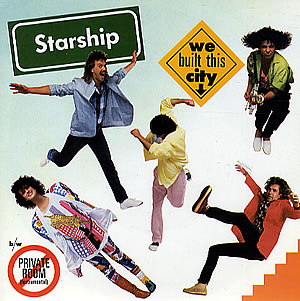
"We Built This City" is a 1985 song by American rock band Starship, the debut single from the album Knee Deep in the Hoopla. It was written by English musicians Martin Page and Bernie Taupin, who were both living in Los Angeles at the time, and was originally intended as a lament against the closure of many of that city's live music clubs.

"You're All I Need to Get By" is a song recorded by the American R&B/soul duo Marvin Gaye and Tammi Terrell and released on Motown Records' Tamla label in 1968. It was the basis for the 1995 single "I'll Be There for You/You're All I Need to Get By" from Method Man and Mary J. Blige.
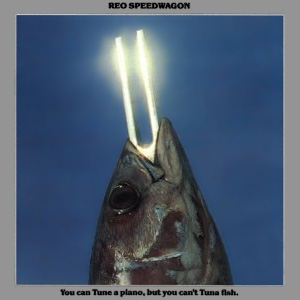
You Can Tune a Piano, but You Can't Tuna Fish is the seventh studio album by REO Speedwagon, released in 1978. It was their first album to be co-produced by lead singer Kevin Cronin and lead guitarist Gary Richrath. The album was REO's first to make the Top 40, peaking at No. 29. The album sold over 2 million copies in the US, which led it to being certified 2× Platinum.
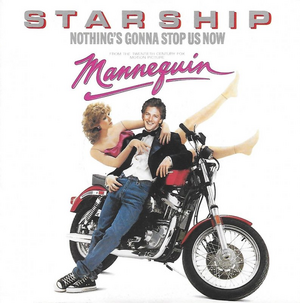
"Nothing's Gonna Stop Us Now" is a song co-written by Diane Warren and Albert Hammond and recorded by American rock band Starship for their second studio album, No Protection (1987). It is a power ballad duet featuring vocalists Grace Slick and Mickey Thomas and is the theme to the romantic-comedy film Mannequin.

Barbra Streisand is an American actress and singer. Her discography consists of 117 singles, 36 studio albums, 11 compilations, 11 live albums, and 15 soundtracks. According to the Recording Industry Association of America, Streisand is the second-best-selling female album artist in the United States with 68.5 million certified albums in the country, and a career total of 150 million, making her one of the best-selling music artists

"Deacon Blues" is a song written by Walter Becker and Donald Fagen in 1976 and recorded by their group Steely Dan on their 1977 album Aja. It peaked at number 19 on the Billboard charts and number 17 on the U.S. Cash Box Top 100 in June 1978. It also reached #40 on the Easy Listening chart. In Canada, it peaked at #14, a position it occupied for two weeks, and #20 Adult Contemporary. In 2021, it was listed at No. 214 on Rolling Stone's "Top 500 Greatest Songs of All Time".
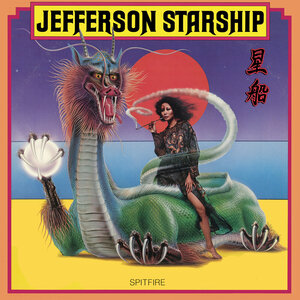
Spitfire is the third album by American rock band Jefferson Starship. Released in 1976, a year after the chart-topping Red Octopus, it quickly scaled the charts, peaking for six consecutive weeks at No. 3 in Billboard and attaining a RIAA platinum certification. The album features writing contributions from members of singer Marty Balin's former band Bodacious DF, as well as Jesse Barish, who became one of Balin's frequent collaborators. Stereo and quadraphonic mixes of the album were released. "Song to the Sun" was included in the 1977 Laserock program.
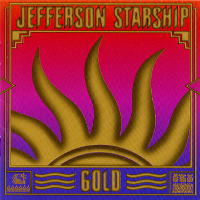
Gold is a compilation album by American rock band Jefferson Starship, released on Grunt Records in 1979. It collects the band's four Top 40 hit singles from the 1970s, as well as three additional singles that charted on the Billboard Hot 100, a single that missed the chart, one b-side, and one album track. All tracks were also featured on their four studio albums to date: Dragon Fly from 1974; Red Octopus from 1975; Spitfire from 1976; and Earth from 1978. It peaked at No. 20 on the Billboard 200, and has been certified a gold record by the RIAA.

"You Belong to Me" is a song written by American singer-songwriters Carly Simon and Michael McDonald. Originally recorded by McDonald's rock group The Doobie Brothers for their seventh studio album, Livin' on the Fault Line (1977), the song was made famous by Simon when she recorded it for her seventh studio album, Boys in the Trees (1978). A live version of the song from The Doobie Brothers' 1983 album Farewell Tour would later chart on the Pop Singles chart at No. 79 in August 1983.

"Even Now" is a 1978 song by American adult contemporary and pop music singer Barry Manilow. It is the title track from his 1978 album, and Manilow wrote the music and co-produced the track with Ron Dante. The words were written by Marty Panzer.

"You Tell Me Why" is a song by American rock group The Beau Brummels, from the band's second album, The Beau Brummels, Volume 2. The song was written by guitarist Ron Elliott and produced by Sylvester Stewart, later known as Sly Stone. "You Tell Me Why" was released as the album's lead single, and peaked at number 38 on the Billboard Hot 100 in August 1965. The band revisited the song and included it on their 1975 eponymous album. The original version later appeared on the band's 1987 compilation album The Best of The Beau Brummels 1964–1968.

Paul Revere & the Raiders are an American rock band from Boise, Idaho. Formed in 1958, the band released their first hit single three years later, "Like, Long Hair", which reached number 38 on the U.S. Billboard Hot 100 chart. Following a few minor charting singles, including a version of "Louie Louie", the band worked with producer Terry Melcher in updating their sound, combining fast-paced, guitar-and-vocal-dominated rock and roll with an intimidating R&B flavor. The result was a string of commercially successful singles, beginning with 1965's "Steppin' Out" and continuing with "Just Like Me", which reached number 11 on the Hot 100, as well as "Kicks", "Hungry", and "Good Thing", all of which peaked inside the top 10. In addition, the band's three 1966 studio albums—Just Like Us!, Midnight Ride, and The Spirit of '67—were each certified gold in the United States.
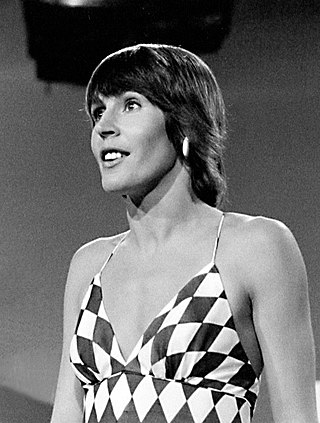
Australian-American singer Helen Reddy (1941–2020), often referred to as the "Queen of 70s Pop", recorded 18 studio albums, seven of which have achieved sales of 500,000 units in the US for which they were awarded Gold certification by the Recording Industry Association of America. One of those seven, I Am Woman, eventually went Platinum by reaching sales of one million copies, and her first compilation album, Helen Reddy's Greatest Hits, was awarded Double Platinum status in 1992 for hitting the two million sales mark. The respective US and Canadian album charts in Billboard and RPM magazine each had appearances by 10 of these LPs during the 1970s.

"Miracles" is a song written by Marty Balin and originally recorded by Jefferson Starship, appearing on its 1975 album Red Octopus.

"With Your Love" is a song written by Marty Balin, Joey Covington and Vic Smith. The song was first recorded by Jefferson Starship and was the lead single of their 1976 album Spitfire. In the US, the single peaked at number 12 on the Billboard Hot 100 and number 6 on the Adult Contemporary chart. It was also a top-ten hit in Canada.
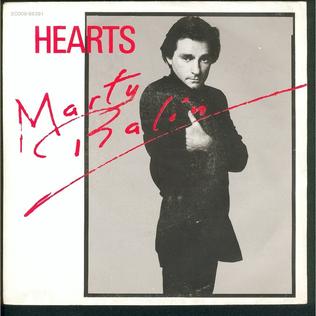
"Hearts" is a song written by Jesse Barish and performed by Marty Balin in 1981, included in his debut solo album Balin. It was Balin's third single in nineteen years and the biggest hit of his solo career.

"Count on Me" is a 1978 song and single by Jefferson Starship written by Jesse Barish for the album Earth. The single, in lighter rock mode, gave Starship another US Top 10 hit after "Miracles". It was featured in the end credits to the movies Grown Ups and The Family Stone.

"Jane" is a 1979 song by Jefferson Starship from the album Freedom at Point Zero. The song peaked on the Billboard Hot 100 at No. 14, and spent three weeks at No. 6 on the Cash Box Top 100. In Canada, the song peaked at No. 13. Billboard Magazine described "Jane" as "a fiery track paced by stinging guitars and some burning rhythm work." Cash Box described it as "an explosive rocker, with slashing guitars." Record World called it a "driving rocker" and praised Mickey Thomas' vocals. GQ in 2015 said it was a "perfect, complex, trash-gem of work of art."




















